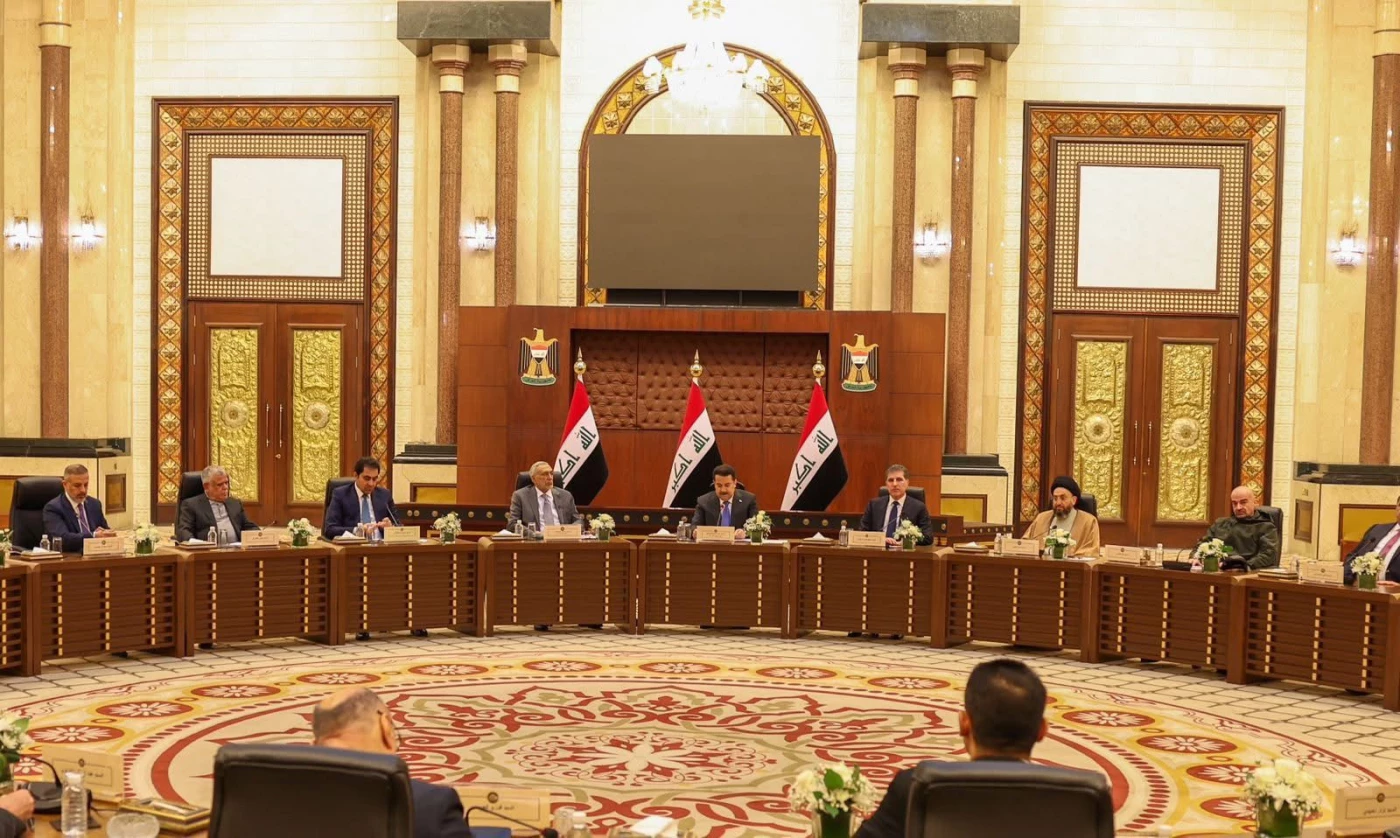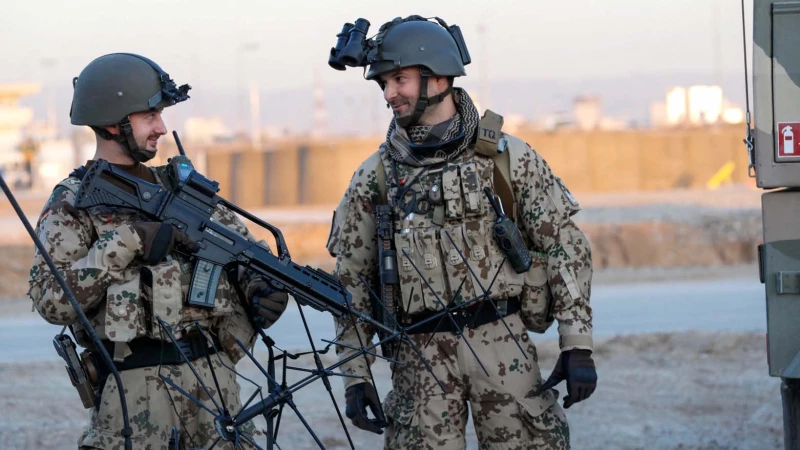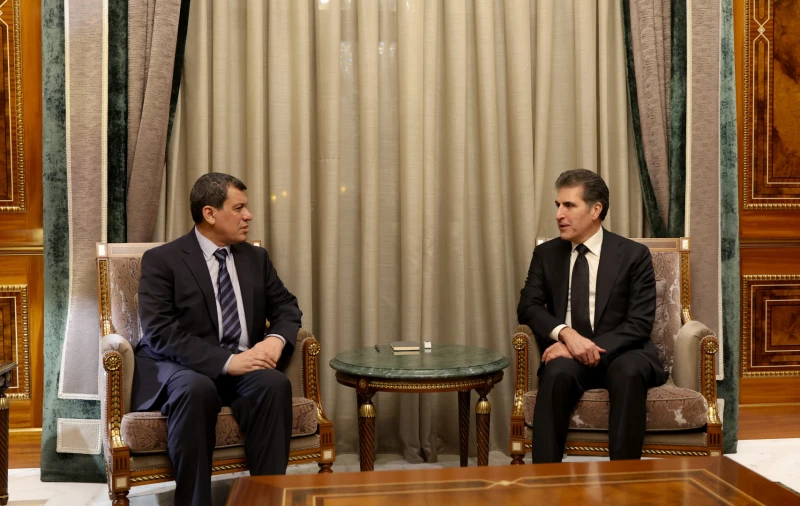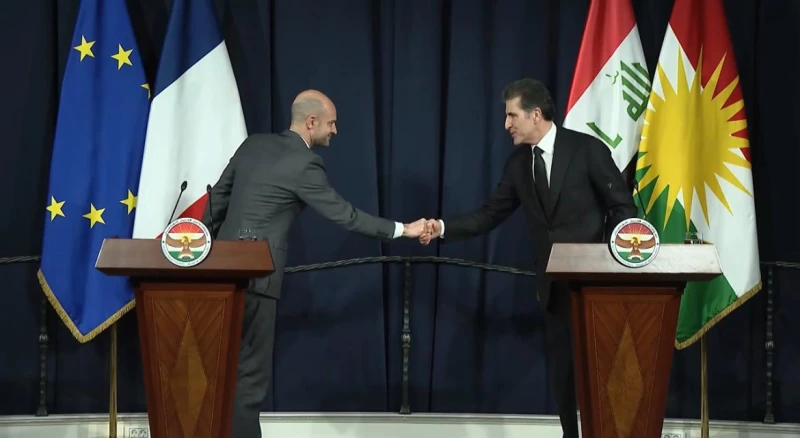ERBIL, Kurdistan Region of Iraq - The Iraqi government’s forming alliance on Sunday held a meeting in Baghdad in the presence of Kurdish leaders, including Kurdistan Region President Nechirvan Barzani, and Patriotic Union of Kurdistan (PUK) leader Bafel Talabani, discussing a range of topics, including outstanding financial issues between Erbil and Baghdad.
The State Administration Coalition stressed that the issue of salaries of the Kurdistan Region’s civil servants is not politically motivated, but rather a “technical” issue that needs to be resolved through “dialogue and understanding,” according to a statement by the Iraqi Prime Minister’s media office.
Salaries of the Kurdistan Region’s civil servants and the Region’s share of the federal budget have long been a point of contention between the federal and regional governments. As of the time of this writing, the KRG has not been able to pay its civil servants their December 2024 salaries, citing Baghdad’s refusal to send the agreed-upon amount for said salaries.
Today’s meeting of the State Administration Coalition in Baghdad came a day after the Kurdistan Region’s Council of Ministers held an irregular meeting in Erbil with Kurdish ministers in the federal government and heads of parliamentary blocs in the Iraqi parliament, discussing the next steps for the Kurdish representation in the political process in Baghdad amid ongoing budget issues, blaming the central for not sending the Region's share on time, and in full.
A few hours before the Iraqi government’s forming alliance held its meeting, the Iraqi finance ministry responded to the KRG, saying they had fully paid salaries of the Kurdistan Region’s civil servants, despite the KRG of “non-compliance” with previously agreed-upon agreements between Erbil and Baghdad to hand over non-oil revenues to Baghdad.
Based on the 2024 Iraqi general population census, the Kurdistan Region makes up around 14 percent of the overall Iraqi population and therefore is constitutionally entitled to 14 percent of the federal budget. Peshawa Hawramani, spokesperson for the KRG said that Baghdad has paid the KRG only seven percent of the budget share.
“Starting from 2026, the Kurdistan Region will no longer ask for salaries from the federal government, but rather The Kurdistan Region’s share of the budget needs to be sent,” the KRG spokesperson noted.
"In case the Kurdistan Region’s requests are not met… a decision might be taken that may not serve the interests of Iraq and the Kurdistan Region, and may impact the stability of the wider region,” Hawramani concluded.
In an interview with The New Region on Wednesday, Hawramani said that if the discussions with Baghdad fail to bear fruit, a Kurdish withdrawal from the Iraqi political process is in the realm of possibilities.
“It is not a matter where we can easily say we will withdraw, but it is not impossible,” he said. “It is not something that we can say is far from happening, it could happen if this treatment continues.”
The Kurdistan Region's Kurdistan Democratic Party (KDP) and the Patriotic Union of Kurdistan (PUK) are both part of Iraq's ruling State Administration Coalition and have two ministers each in Mohammed Shia' al-Sudani's cabinet. Additionally, Kurdish lawmakers make up 62 of the Iraqi parliament's 329 seats and also hold the post of the legislature's second deputy speaker.
Syria and regional developments
The State Administration Coalition discussed several other topics in today’s meeting including recent developments in Syria, security-related matters, and Israel’s war on Gaza.
"The Coalition called for Iraq to continue its firm approach in dealing with regional and international challenges and events, in a way that preserves Iraq's interests and avoids conflicts and crises,” the statement read, adding the alliance discussed Syria and reiterated "Iraq's readiness to support the brotherly Syrian people.”
The Iraqi government was a staunch supporter of the Assad regime, but has slowly moved toward establishing relations with the new administration in Damascus.
After weeks of hesitation, an Iraqi delegation, headed by Intelligence Service chief Hamid al-Shatri, arrived in Damascus on December 26 to meet with the new government.



 Facebook
Facebook
 LinkedIn
LinkedIn
 Telegram
Telegram
 X
X


